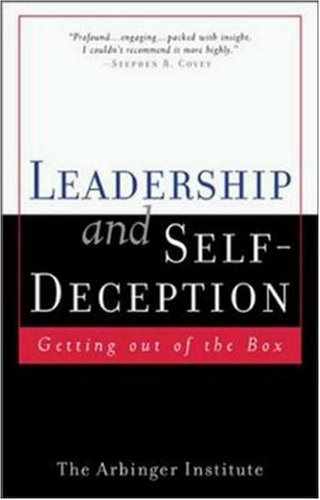“You have a problem,” Bud continued. “The people at work know it; your spouse knows it; your mother-in-law knows it. I bet even your neighbors know it.” He was smiling warmly. “The problem is that you don’t know it.”
I found myself speechless. How could I know I had a problem if I didn’t even know what the problem was?
“I’m afraid I don’t know what you mean. Are you saying that I... that I....” I had no idea what he was talking about.
“Well,” he said in a way that made me think he was enjoying this, “think about these examples for starters.
“Remember the time you had a chance to fill the car with gas before your wife took it, but then you decided she could fill it just as easily as you, so you took the car home empty?”
How did he know about that? I wondered.
“Or the time you promised the kids a trip to the ballpark but backed out at the last minute, on some feeble excuse, because something more appealing had come up?”
How did he know about that?
“Or the time, under similar circumstances, you took the kids to the ball game anyway but made them feel guilty for it?”
Uh-oh.
“Or the time, when reading to your toddler, you cheated him by turning more than one page at a time because you were impatient and ‘he wouldn’t notice anyway’?”
Yeah, but he didn’t notice.
“Or the time you parked in a Handicapped Only parking zone and then faked a limp so people wouldn’t think you were a total jerk?”
Hah! I’ve never done that.
“Or the time you did the same thing but ran from the car with apparent purpose to show that your errand was so important that you just had to park there?”
Well, I have to admit I have done that.
“Or the time, driving at night, the driver of a car close behind you kept his brights on, and you let him pass so you could do the same thing back to him?”
So?
“And think of your style at work,” he continued, now on a roll. “Do you sometimes demean others? Are you sometimes punishing and disdainful toward the people around you, scornful of their laziness and incompetence?”
“I guess that’s true part of the time,” I muttered. I had to admit it; he seemed to know. “But—”
“Or do you more often try to do the acceptable thing?” he interrupted. “Do you indulge the people who report to you with kindness and all the other ‘soft stuff’ you can think of in order to get them to do what you want—even though you still feel basically scornful toward them?”
This was hitting below the belt. “I work hard at treating my people right,” I protested.
“I’m sure you do,” he said. “But let me ask you a question. How do you feel when you’re ‘treating them right,’ as you say? Is it any different from the way you feel when you’re being punishing and scornful toward people? Deep down, is there any difference?”
“I’m not sure I know what you mean,” I replied, stalling for time.
“I mean this: Do you feel you have to ‘put up’ with people? Do you feel—honestly, now—that you have to work pretty hard to succeed as a manager when you’re stuck with the kind of people you’re stuck with?”
“Stuck?” I asked, still stalling.
“Think about it. You know what I mean,” he said, still smiling.
I thought frantically. There was no escape. Finally, I replied: “Well, I guess it’s true. I do think a lot of people are lazy and incompetent. But what am I supposed to do? Telling them doesn’t usually help. So I try to get them going in other ways. Some I cajole, others I try to motivate, others I outsmart, and so on. And I try to smile a lot. I’m kind of proud of how I handle myself, actually.”
Bud smiled kindly. “I understand. But when we’re finished, you won’t be so proud of it. What you’re doing is often wrong.”
I was incredulous. “How can it be wrong to treat people right?”
“But you’re not treating them right. That’s the problem. And you’re doing more damage than you know.”
“What do you mean? You’re going to have to explain that to me.” Angry now, as well as befuddled, I wanted to know what he was up to.
“I’ll be happy to explain it to you,” he said calmly. “I can help you learn what your problem is—and what to do about it. That’s why we’re meeting.” He paused and then added, “I can help you because I have the same problem.”
Bud rose from his chair—slowly, even solemnly—and began pacing the length of the table. “To begin with, you need to know about a problem at the heart of the human sciences.”
